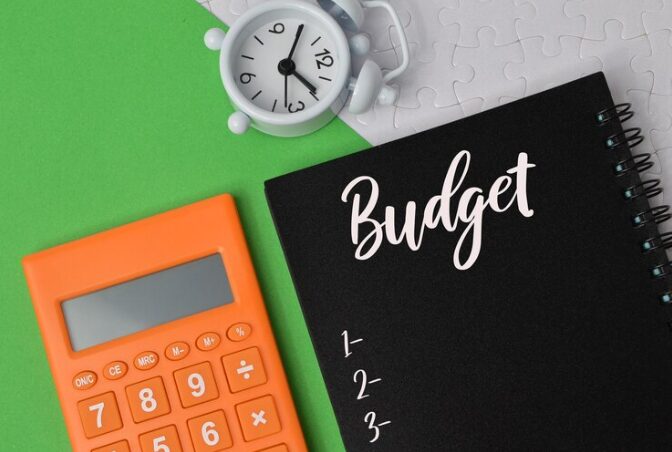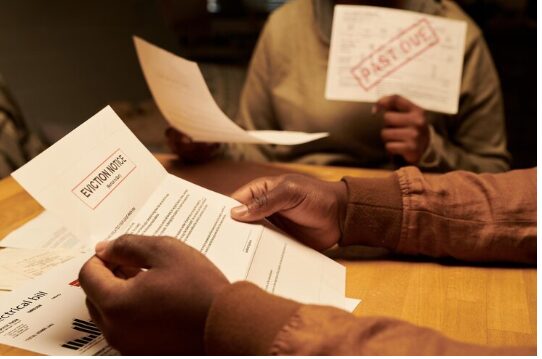Achieving financial freedom might feel like a far-off dream, but with the right strategies, it’s absolutely within your reach. Financial freedom means having the money and resources to live the life you want without constantly worrying about bills or debt. It’s about taking control of your finances so that you can focus on what really matters—whether that’s spending more time with family, traveling the world, or simply enjoying a stress-free retirement.
Ready to take control of your financial future? Keep reading to discover proven strategies for financial freedom that can set you on the path to success!
1. Create a Budget and Stick to It

First things first—if you don’t already have a budget, it’s time to make one. A budget is the foundation of any solid financial plan. It helps you track your income and expenses, so you know exactly where your money is going.
- List your income sources: Include your salary, side hustles, and any other income.
- Track your expenses: Categorize them into needs (rent, utilities, groceries) and wants (dining out, entertainment).
- Set spending limits: Make sure you’re not spending more than you earn.
Pro Tip: There are plenty of budgeting apps available, like Mint or YNAB (You Need a Budget), that can make this process a lot easier.
2. Build an Emergency Fund
Life is unpredictable, and having a financial safety net is crucial. An emergency fund is a stash of money set aside to cover unexpected expenses, like medical bills, car repairs, or sudden job loss.
Aim to save at least 3-6 months’ worth of living expenses. This might sound like a lot, but start small and build up over time. Having this cushion will give you peace of mind and prevent you from going into debt when life throws you a curveball.
3. Pay Off High-Interest Debt
Debt can be a huge roadblock on your journey to financial freedom. High-interest debt, like credit card debt, can quickly spiral out of control if not managed properly.
Strategies for paying off debt:
- Debt Snowball Method: Pay off your smallest debts first, then roll those payments into your larger debts.
- Debt Avalanche Method: Focus on paying off debts with the highest interest rates first.
Whichever method you choose, the key is to be consistent. Keep chipping away at your debt until it’s gone.
4. Invest for the Long Term

One of the most powerful strategies for financial freedom is investing. Investing allows your money to grow over time, thanks to the magic of compound interest.
Investment options to consider:
- 401(k) or IRA: Take advantage of retirement accounts, especially if your employer offers a match.
- Index Funds and ETFs: These are low-cost, diversified options ideal for long-term growth.
- Real Estate: Investing in property can provide steady rental income and potential appreciation.
The earlier you start investing, the more time your money has to grow. Even if you can only invest a small amount, start now!
5. Live Below Your Means
It might sound simple, but living below your means is one of the most effective strategies for financial freedom. This doesn’t mean you have to live like a monk, but it does mean making conscious choices about your spending.
Tips for living below your means:
- Avoid lifestyle inflation: Just because you get a raise doesn’t mean you need to spend more.
- Be mindful of your spending: Ask yourself if you really need something before you buy it.
- Save before you spend: Automate your savings so that a portion of your income goes straight into savings before you even see it.
Living below your means allows you to save more, invest more, and reach financial freedom faster.
6. Diversify Your Income Streams
Relying on a single source of income can be risky. If you lose your job or your primary income stream dries up, it can put your financial security at risk. That’s why it’s important to diversify your income streams.
Ideas for additional income streams:
- Side Hustles: Freelancing, gig economy jobs, or selling products online.
- Passive Income: Investments, rental income, or creating digital products.
- Part-Time Work: Teaching, consulting, or working in an area you’re passionate about.
The more income streams you have, the more secure your financial future will be.
7. Continue Learning About Personal Finance
Finally, financial freedom is not a one-time goal; it’s a lifelong journey. To stay on track, commit to continually learning about personal finance.
Resources for continued learning:
- Books: Check out classics like “Rich Dad Poor Dad” by Robert Kiyosaki or “The Millionaire Next Door” by Thomas J. Stanley.
- Podcasts: Listen to shows like “The Dave Ramsey Show” or “Afford Anything”.
- Blogs: Follow personal finance blogs like Mr. Money Mustache or The Simple Dollar.
The more you know, the better decisions you’ll make, and the closer you’ll get to financial freedom.
Take the First Step Toward Financial Freedom Today!
Financial freedom isn’t just a dream; it’s a goal you can achieve with the right strategies. Start by creating a budget, paying off debt, and investing for your future. As you implement these strategies for financial freedom, you’ll find yourself moving closer to the life you’ve always wanted—one where you’re in control of your money, not the other way around.
Are you ready to take the first step? Start with just one strategy today, and watch how your financial situation begins to improve.
Your Journey to Financial Freedom Starts Now
Don’t wait for tomorrow to start building your future. The sooner you take control of your finances, the sooner you’ll achieve financial freedom. Remember, it’s not about making huge changes overnight—it’s about consistently applying these strategies for financial freedom, step by step, day by day.
Take action now, and you’ll thank yourself later!
Let me know if you’d like any adjustments or additional content!





